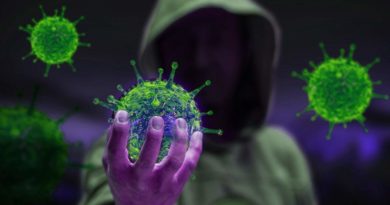Study: Some Health Care Professionals Found to Spread COVID-19 Misinformation Via Social Media
Health care professionals representing a range of various medical specialties were found to spread COVID-19 misinformation, including about vaccination, treatment, and masks on social media and had a wide reach based on their number of followers, according to the results of a study published in JAMA Network Open.1
Image credit: REDPIXEL – stock.adobe.com

Investigators of the study determined that there needs to be an evaluation of harm caused by pharmacy professionals who are in unique positions on social media, propagating misinformation. They added that ethical and legal guidelines for misinformation are needed.1
According to the CDC, as of August 9, 2023, there have been more than 152,500,000 total bivalent vaccine doses distributed across the United States. There were a total of 6,244,216 total hospitalizations as of August 5, 2023, and 1,137,742 total deaths as of August 12, 2023, in the United States.2
The study authors aimed to characterize the types of COVID-19 misinformation spread by health care professionals after the vaccines became available, the platformed used, and the characteristics of the individuals spreading the misinformation. They used data from the CDC guidelines for the prevention and treatment of COVID-19 to determine what was considered misinformation. Additionally, they structured their searches on social media platforms, such as Twitter, Facebook, Instagram, Parler, and YouTube, and news sources, such as The New York Times and National Public Radio.1
Investigators identified misinformation from health care professionals who were based in the United States from January 2021 and December 2022. They also confirmed the license and medical specialty of the individuals. The number of followers on all 4 major planforms were included to estimate the reach for the analysis.1
Advertisement
The study authors determined that 50 physicians across 28 specialties contributed to COVID-19 misinformation, including vaccines, medication, masks, and other (including conspiracy theories). Two other health care professionals included in the analysis were researchers.1
Out of the 50 physicians, 88% held an active license in at least 1 state, 6% did not have an active license, 8% had a suspended or revoked license, and 2% had active licenses in 2 states and revoked or suspended licenses in 2 other states.1
Approximately 80.8% of the health care professionals posted vaccine misinformation whereas 76.9% propagated information about more than 1 of the categories identified. Additionally, approximately 38.5% posted the misinformation to 5 or more platforms, and 76.9% appeared on 5 or more third-party online platforms, including news outlets.1
Investigators noted that Twitter was the most used platform with 71.2% of the health care professionals using the platform. There was a median of 67,400 followers, according to the study results.1
The study authors identified major themes to be disputing vaccine safety and efficacy, promoting medical treatments that lack scientific evidence and/or FDA approval, and disputing the efficacy of wearing a mask. Furthermore, there were unsubstantiated claims including virus origin, government lies, and other conspiracy theories.1
The most common theme was the health care professional discouraging others from receiving the COVID-19 vaccines by promoting fear and distrust of the vaccine in favor of natural immunity, according to the study results.1
Although the investigators called for action to help regulate misinformation on COVID-19 and other conditions, they also noted that free speech needs to be carefully taken into account. The study authors added that it is important to understand the degree to which misinformation about vaccines, medications, and conspiracy theories affects patients and social media users who see the content.1
References
- Sule S, DaCosta MC, DeCou E, Gilson C, Wallace K, Goff SL. Communication of COVID-19 misinformation on social media by physicians in the US. JAMA Netw Open. 2023;6(8):e2328928. doi:10.1001/jamanetworkopen.2023.28928
- Centers for Disease Control and Prevention. COVID data tracker. CDC. Updated August 12, 2023. August 18, 2023. https://covid.cdc.gov/covid-data-tracker/#datatracker-home
This article has been archived for your research. The original version from Pharmacy Times can be found here.


